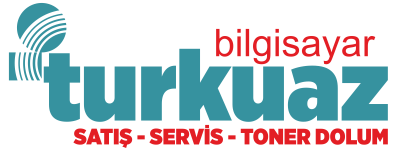Hypertension, frequently known as hypertension, is a persistent medical condition that impacts millions of people worldwide. It is commonly described as the “silent awesome” since it rarely creates obvious signs until it gets to innovative phases. Comprehending the symptoms of hypertension is crucial for very early medical diagnosis as well as effective monitoring. This extensive guide will provide you with crucial information about the primary signs, threat elements, and treatment alternatives for high blood pressure.
What is High blood pressure?
High blood pressure is a clinical condition characterized by sustained hypertension levels in the arteries. Blood pressure is the pressure put in by the blood versus the walls of the arteries as the heart pumps it around the body. It is determined making use of 2 numbers: systolic stress oculax na oci over diastolic pressure. Systolic stress stands for the force applied on the artery walls when the heart contracts, while diastolic stress signifies the stress when the heart relaxes between beats. A blood pressure reading of 120/80 mmHg (millimeters of mercury) is considered normal, whereas readings continually over 130/80 mmHg show hypertension.
While occasional boosts in high blood pressure can be regular, persistent hypertension puts extreme pressure on the heart and capillary, increasing the danger of major health and wellness complications such as heart problem, stroke, and also kidney failing. As a result, it is vital to keep an eye on blood pressure routinely and look for clinical guidance if you experience any type of signs and symptoms or have danger factors for high blood pressure.
Threat Variables for Hypertension
Several elements can contribute to the development of high blood pressure. Some of the primary threat aspects include:
- Age: The threat of hypertension raises with age, especially after 45 years.
- Family members background: Having a family history of hypertension or cardiovascular diseases raises the possibility of establishing hypertension.
- Weight problems: Being overweight or overweight places additional pressure on the heart, enhancing the threat of hypertension.
- Unhealthy lifestyle: Lack of exercise, bad nutritional options (high in salt and hydrogenated fats), extreme alcohol intake, and cigarette smoking can all contribute to high blood pressure.
- Chronic problems: Particular medical conditions, such as diabetic issues, kidney condition, and also rest apnea, can enhance the danger of high blood pressure.
- Tension: Extended periods of stress and anxiety can bring about elevated high blood pressure degrees.
While these variables can increase the chance of establishing high blood pressure, it is very important to keep in mind that any individual can be influenced, despite their danger profile. Routine blood pressure checks are consequently necessary for every person, specifically as they age.
Symptoms of High blood pressure
As discussed earlier, high blood pressure is commonly asymptomatic, especially in its onset. Lots of people with high blood pressure feel completely great till difficulties emerge. Nonetheless, some people might experience certain symptoms and signs that can show the visibility of hypertension. These consist of:
- Headaches: Relentless or repeating headaches, especially in the early morning, can often be a signs and symptom of hypertension.
- Wooziness or faintness: Feeling woozy or lightheaded, especially when standing up, may show high blood pressure.
- Blurred vision: Hypertension can cause modifications in vision or obscured vision.
- Shortness of breath: Trouble breathing or shortness of breath can be a signs and symptom of hypertension-related difficulties.
- Upper body discomfort: Although unusual, chest discomfort can happen in extreme instances of high blood pressure.
- Tiredness and weak point: Really feeling exceedingly weary or weak despite adequate remainder and sleep can be connected with high blood pressure.
- Nosebleeds: Although not an usual symptom, inexplicable nosebleeds can sometimes signify high blood pressure.
It is necessary to note that these signs can additionally be brought on by various other medical conditions. Therefore, it is crucial to speak with a healthcare expert for a precise medical diagnosis if depanten you experience any of these symptoms or think that you might have hypertension.
Therapy and also Monitoring of Hypertension
Fortunately, high blood pressure can be successfully taken care of with the right treatment plan, way of living alterations, as well as regular medical check-ups. Therapy alternatives for hypertension may consist of:
- Way of living modifications: Adopting a healthy way of living can play a crucial role in handling hypertension. This includes preserving a well balanced diet plan low in sodium as well as hydrogenated fats, engaging in regular physical activity, managing stress and anxiety levels, restricting alcohol consumption, and quitting smoking.
- Medications: In most cases, way of life adjustments alone may not be sufficient to regulate blood pressure. Physicians might suggest antihypertensive medicines to assist reduced high blood pressure and lower the risk of complications.
- Surveillance and also follow-up: Regular tracking of blood pressure as well as regular clinical examinations are vital to assess the efficiency of treatment as well as make any kind of essential adjustments.
It deserves stressing that hypertension is a chronic condition that requires long-term administration. Also if high blood pressure degrees are effectively managed, it is vital to keep a healthy and balanced lifestyle and follow the prescribed therapy strategy to prevent problems as well as keep overall well-being.
Conclusion
High blood pressure is a widespread clinical problem that affects a considerable portion of the international populace. Regardless of the lack of noticeable symptoms in many cases, high blood pressure positions major wellness risks. Routine blood pressure checks, awareness of danger elements, and also very early discovery of signs are crucial to reliable administration and avoidance of problems. By taking on a healthy and balanced way of living, looking for medical advice, as well as sticking to recommended therapies, people can effectively manage and manage hypertension, promoting better heart health and also overall wellness.
